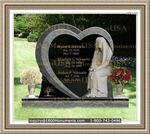|
Exploring ABC's Of Funeral Service And Planning
Losing someone close take an emotional toll. It falls on family to make arrangements for a funeral service unless the deceased prepared them ahead of time. When performing this task, it helps if one is able to look past the grief and view it as a celebration of life for the individual who has passed on.
The first step is choosing through which funerary establishment the arrangements will be made. They usually assign an event coordinator to walk the family through the process. Their purpose is to advise on things such as making sure all the legal documents are completed, creating the obituary, picking a casket or urn, and all the little details that go into the memorial and interment services.
Someone will need to be designated to officiate the services. This is normally the spiritual leader of whatever religious facility the deceased attended. If they did not have any particular affiliations, the family may choose their preferred cleric or the task may be given to the facility director or a close friend.
Once the officiant is chosen, the venue is next. The coordinator can assist in finding a location in which to hold the proceedings. They are also well versed in arranging casket and floral displays, setting up video and audio, creating memorial handouts and suggesting appropriate verses, passages, poems and music for the occasion.
Others may request the opportunity to speak a few words. Giving the eulogy can be one of the more emotional tasks. This heartfelt summary of a life should list their accomplishments and special attributes but should remain only 5-10 minutes long.
A lot goes into arranging a funeral service, which should be no longer than an hour. Providing a guest book lets the family know who attended as well as read the messages they leave behind. Have a place to display photos and other memorabilia as a tribute, and provide a memorial handout as a commemorative keepsake.
|
|



























